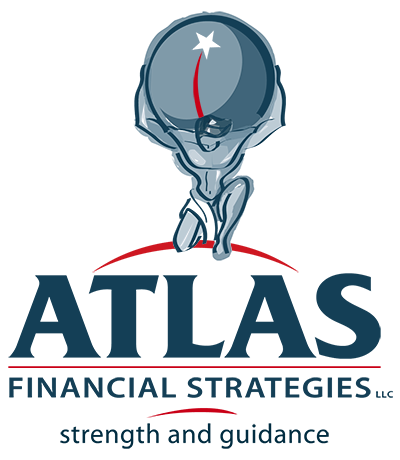- Our Process
- Video Learning Library
- Third Party Resources
- In the News
- Contact
- Investment Team
- Informational Guides
- Client Forms
- Our Firm
- I Just Sold My Business—Now What?
- How to Delay Withdrawals on Your Retirement Accounts
- Blog
- Investment Management
- Preparing Your Business for Sale: Navigating Due Diligence
- The Nautilus Group®
- Special Needs Planning
- Navigating Income Tax
- Life plan for your business®
- What You're Failing to Consider About Your Future Part I: Business Owners
- What You're Failing to Consider About Your Future Part II: Retirees
- What You're Failing to Consider About Your Future Part III: Young Professionals
- How Much Life Insurance Do I need?
- What You Should Know About Your Emergency Fund
- How Pre- and Post-Tax Contributions Affect Your Retirement
- Should You Do a Roth Conversion?
- Managing Debt: The Snowball vs. The Avalanche
- Your Extra Cash: Is It Better to Pay Off Debts or Invest More Money?
- Student Loans: What's the Best Way to Pay Them Off?
- Maximizing Your Money: Find the Most Efficient Use of Your Dollar
- Planning Post-Pandemic: Survival Tips for Business Owners
- Preparing Your Business for Sale: Are You Ready?
- Preparing Your Business for Sale: Pre-Sale Task List
- Preparing Your Business for Sale: Questions to Ask Potential Buyers
- Preparing Your Business for Sale: What to do When Things Get Serious
- When a Retirement and Legacy Arrangement (RALA) Makes Sense for You
- Know Your Numbers: The Importance of Creating Cash Management Systems Before Growth
- Tax Strategies for Business Owners
- Your Growing Business: Hiring the Right People
- Creating an Emergency Succession Plan to Protect Your Business
- Estate Planning: Equal Isn't Always Fair
- What’s the Greatest Gift You Can Leave Your Family? A Plan for Future Financial Success
Student Loans: What's the Best Way to Pay Them Off?For many people, student loans are a necessity to earn a higher education. But like most financial strategies, there’s an abundance of misinformation and general lack of information about how to manage them. Most students graduate with a slew of unanswered questions: Should I try to consolidate my loans? What happens to my loans if I die? Can I get a lower interest rate? And most importantly… How am I going to pay these off? Student loans are also situational, so what works for one person may not be helpful for another. That’s why the best course of action is to gain knowledge about your particular loans in relation to your financial situation and consider the options available to you. Our goal at Atlas Financial Strategies is to help people better understand their finances so they can make decisions in line with their goals. And with loan forgiveness on many people’s minds, we wanted to provide some insight about student loans and some things you should consider when paying them off. Federal LoansTo start, you should know that your payment options will vary greatly depending on whether you have a private loan or a federal loan. Most student loans are federal loans, and these tend to offer more flexibility than private loans when it comes to forgiveness and repayment options. Federal Forgiveness In 2021, President Biden placed a hold on student loan payments until 2022, so federal student loan debtors aren’t required to make payments until January—a helpful reprieve for many. That said, if it suits your budget, you can continue making payments this year while interest isn’t accruing. By doing so, not only could you potentially retire your loan early, but you’d end up paying much less in interest over the lifetime of your loan. If you choose to make payments during this forbearance period, just be sure to clarify with your loan servicer that you wish to apply your full payment(s) to the principle. That said, just because you have extra cash on hand to make additional payments (or in this case, payments that aren’t yet required), that doesn’t mean that’s the most efficient use of your dollar. If you have higher-interest debts to pay or need to build your emergency fund, you might consider using the money to accomplish one of those goals instead. You could also invest your extra cash—it all boils down to your individual situation and priorities. (For more information about whether you should pay off debts or invest your extra cash, check out this blog about making the best use of your dollar.) Income-Driven Repayment Plans Federal loans also offer repayment plans based on your ability to make payments. These plans consider your family size and income level in relation to the federal poverty guideline and calculate your payments based on your discretionary income. After 20 or 25 years, the remaining balance is then forgiven. If you work for a state municipality or nonprofit, the balance is forgiven after 120 qualifying payments (typically ten years). These income-driven plans are available for anyone with a federal loan, but they’re not beneficial for everyone. If you signed up for a loan when you started school and you’re now making less money than you anticipated, an income-driven plan could lower your monthly payments and give you some much-needed flexibility in your budget. However, if you earn a high income, this type of plan might require you to pay more per month than a standard repayment plan would. That’s why it’s best to consider each option in relation to your individual situation and goals. Probate Federal loans are also typically forgiven when you pass away, whereas private loans are often included in probate, meaning the remaining balance would be taken from your estate in the event of your passing. Private Loans Generally, federal loans are favored by students because of their flexible repayment plans and forgiveness opportunities. That said, private loans sometimes offer lower interest rates that are helpful in certain circumstances. If you currently have a federal loan, there are two ways you can transfer your debt to a private lender with a better interest rate. Refinancing & Consolidation Refinancing allows you to transfer a federal student loan to a private lender. If you have multiple federal loans, you can also consolidate them into one private loan. With either option, you’ll want to proceed with caution—private loans typically aren’t as flexible for borrowers who are unemployed or experiencing economic difficulties, so you need to make sure you can afford your new payment plan for the foreseeable future. Something else to consider is that once you refinance a federal student loan to a private loan, you can’t reverse it. That means you’ll be disqualified from federal loan forgiveness and income-driven repayment plans—which, in some cases, offer more valuable aid than lower interest rates do. You should also read the fine print on any private loan agreement—some plans offer extremely low interest rates in the first year but increase them later. That said, if you already have private student loans, there’s no reason not to consider refinancing or consolidating. Just be sure to compare your monthly payments to the total repayment cost—if the new terms simply extend your payment period at a lower rate, you could pay thousands more in interest by the time you pay off the loan. Know Your MoneyThere are multiple factors to consider when deciding how to pay off your student loans, and the right method will be different for each person. That’s why it helps to understand your options and how they relate to your overall goals. Different seasons of life may require different strategies, and you’ll be able to make the best choice when you know exactly where you stand. If you have questions about your personal financial plan or you’d like help developing a debt-repayment strategy, we’d love to talk with you! Just click the red button below to schedule a consultation. |
 Quick Links
Quick Links
